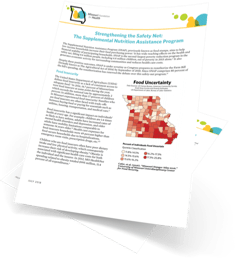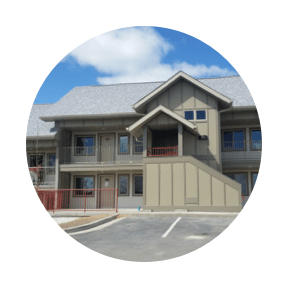

Capturing Funds for Missouri
Since 2010, our MoCAP program has helped local groups apply for and attract out-of-state health funding, leveraging our investment to bring in more than $137 million to the region!


Speaking Your Language
Our new translation services are an important step to making sure we're more inclusive and accessible to everyone in our communities.


Valuing Family First
Our President and CEO Bob Hughes addressed one of 2018's biggest issues when he wrote about the toxic health effects of family separation at the border and through our justice system.



Supporting Women in the Workplace
We live by our values at MFH. That's why we're proud to share that we were named one of the Best Places to Work for Women in 2018 by the Women's Foundation of Greater St. Louis. They noted our commitment to equitable compensation, leadership representation, flexible work policies, and recruitment and retention initiatives. In 2018 we also refined our family-leave policy, helping both mothers and fathers spend additional time with their new babies or adopted children.

Just the Factsheets
Out of 101 rural counties in the state, 99 of them are considered health professional shortage areas. Rural Missourians may need to travel twice as far for care, and many travel 100 miles round trip to see their health care provider. Our Health Policy team delved into the issue of rural transportation and health for this 2018 factsheet.
This is just one of the many factsheets we've developed to help inform about issues including health care reform, equity, access, and more. View more of the factsheets here.



Transforming Public Health
2018 marked the end of phase I of the #HealthierMO grassroots initiative. We've supported this work in partnership with the Missouri Public Health Association and the Health Forward Foundation as part of our Public Health Infrastructure focus. In its first phase the initiative sought to engage stakeholders from across the state in identifying what is working well in public health and potential opportunities for change. The ultimate goal is to transform the future of public health in Missouri and offer every resident the opportunity for a healthier life. We're excited to see phase II begin in 2019!

Sharing Knowledge
MFH's own Ryan Barker, vice president of health policy, co-authored this piece in the New England Journal of Medicine's Catalyst publication, sharing lessons learned over five years of facilitating Affordable Care Act open enrollment in Missouri.


Staff Accolades
Congratulations to Foundation staff members Jean Freeman Crawford, Jessi LaRose, and Andrew Shaughnessy! All three were selected for prestigious fellowships/leadership programs in 2018 (Grantmakers in Health's Terrance Keenan Institute for Emerging Leaders, the Leadership Northeast Missouri Program, and FOCUS Leadership St. Louis, respectively).


Supportive Housing
Early data reveals that our Show Me Healthy Housing work is already making a difference! A report about Patriot Place apartments in Columbia, Missouri shows that veterans living there ended up needing less health care and social services.



Building the Workforce
We're excited to welcome the first cohort of Behavioral Health Support grads from Ozark Technical Community College to the field!

Criminal Justice Reform
With support from the Foundation's Opportunity Fund, St. Louis City is teaming up with FUSE Corp, a national nonprofit, to reduce the city's jail population by 40 percent over the next five years and substantially reduce the jails' housing facilities. Through this collaboration the city hired two external, executive-level FUSE fellows for 12 months. One is devoting their time to bail-bond reform, while the other is working to increase the quality, quantity, and timeliness of behavioral health services for justice-involved individuals.











